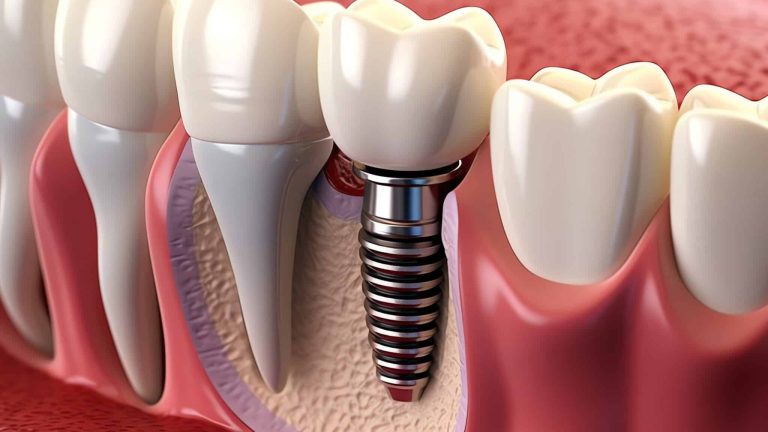Encouraging oral hygiene habits in children from an early age is essential to ensure optimal dental health throughout their lives. Teaching them the importance of caring for their teeth and gums not only prevents issues like cavities and periodontal diseases but also establishes a healthy routine that will follow them into adulthood. In this article, we will explore effective strategies for instilling oral hygiene habits in young children.
Why is oral hygiene important in the early years?
Although baby teeth are temporary, their care is essential for several reasons:
- Prevention of early cavities: Baby teeth are more prone to cavities due to their thinner enamel.
- Healthy development: Baby teeth guide the proper growth of permanent teeth.
- Avoiding complications: Infections in baby teeth can affect the child’s overall health.
- Establishing habits: Children who learn to care for their teeth early are more likely to maintain good oral hygiene in adulthood.
Strategies for creating oral hygiene habits in young children
1. Start from birth
Even before the first teeth appear, it is important to care for the baby’s mouth. Clean their gums with a damp cloth after each feeding to remove milk residue and bacteria.
2. Introduce brushing when the first teeth appear
As soon as the first tooth appears, start brushing it gently. Use a soft-bristled toothbrush that is appropriately sized for children.
- Fluoride toothpaste: Use an amount equivalent to a grain of rice until age 3, then increase to a pea-sized amount from that age onward.
- Frequency: Brush teeth twice a day, especially before bedtime.
3. Make brushing fun
Young children respond better to activities they find enjoyable. Some ideas include:
- Using toothbrushes with bright colors or favorite characters.
- Playing songs or videos about dental brushing.
- Telling stories or creating games related to dental care.
4. Be a role model
Children imitate what they see. Brush your teeth alongside them so they can observe how it’s done and understand that it is an important part of the daily routine.
5. Establish a consistent routine
Consistency is key to creating habits. Set regular times for dental brushing, such as after breakfast and before bed.
6. Introduce flossing
When teeth start to touch each other, introduce flossing. Do it for them at first, and gradually teach them how to do it correctly.
7. Limit sugar consumption
Sugar is one of the main causes of cavities in young children. To protect their teeth:
- Avoid sugary drinks like juices and sodas.
- Limit sweets and processed snacks.
- Opt for healthy alternatives, such as fresh fruits and vegetables.
8. Control the use of bottles and pacifiers
Prolonged use of bottles or pacifiers can contribute to dental problems, such as bottle decay or teeth misalignment. Some recommendations include:
- Do not let the child fall asleep with a bottle.
- Wean off the bottle and pacifier before age 2.
9. Regular dentist visits
Take your child to the dentist when their first tooth appears or before their first birthday. Regular visits help detect early problems and accustom the child to the dental office environment.
Common obstacles and how to overcome them
1. Resistance to brushing
It’s common for young children to resist dental brushing. To handle this situation:
- Let them choose their own toothbrush.
- Use a timer or app to measure the time and make it more interesting.
- Praise their efforts and offer small non-food rewards, such as stickers.
2. Fear of the dentist
Some children feel anxious or fearful about visiting the dentist. To help them:
- Speak positively about dental visits.
- Read books or show videos explaining what to expect during a dental appointment.
- Take them to a pediatric dentist who specializes in treating children.
3. Lack of interest in oral hygiene
If the child shows no interest, try to engage them more:
- Teach them how “bad” bacteria can harm their teeth and how brushing removes them.
- Use mirrors so they can observe their own mouth while brushing.
Importance of parental supervision
Young children lack the manual dexterity needed to brush their teeth effectively until about age 7 or 8. Therefore, parents should:
- Supervise brushing to ensure all tooth surfaces are cleaned.
- Assist with flossing.
- Reinforce the daily oral hygiene routine.
How to promote long-term healthy habits
To ensure the oral hygiene habits established in childhood endure, it is important to:
- Educate the child about the importance of dental health.
- Involve the whole family in oral care routines.
- Celebrate achievements related to dental care, such as a good dental check-up.
Conclusion
Creating oral hygiene habits in young children is an investment in their long-term health. With patience, consistency, and a fun approach, it is possible to teach them the importance of dental care and help them develop a healthy smile that will last a lifetime.




